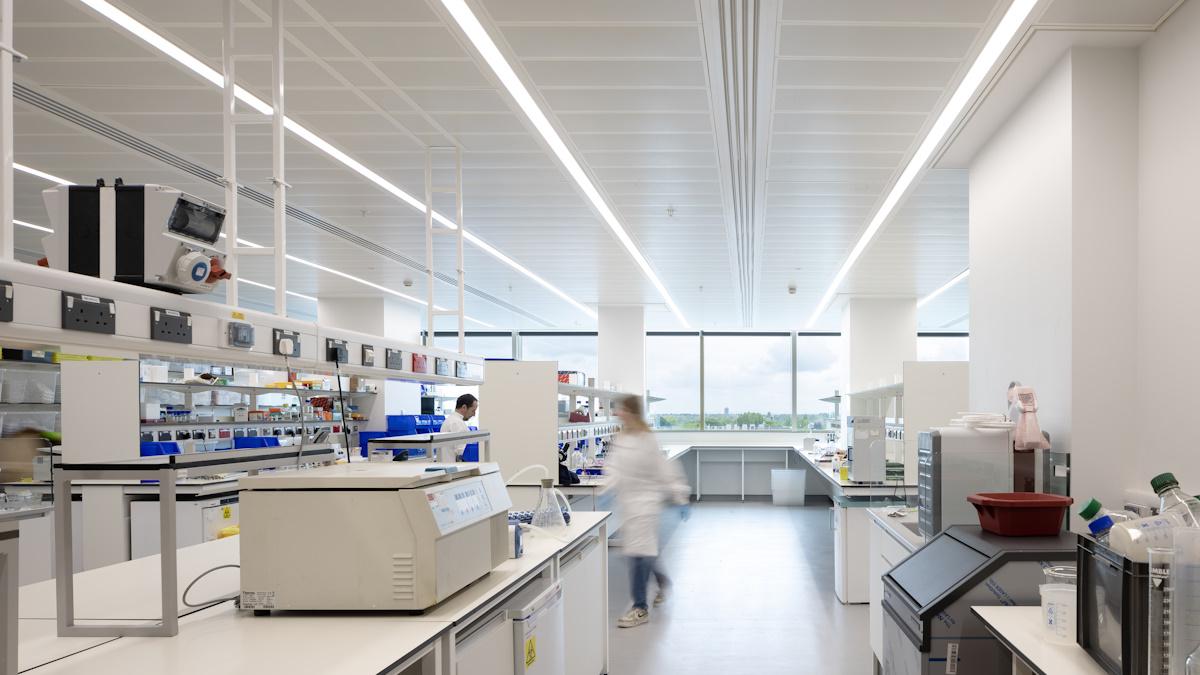CRUK backs AI-powered, virtual radiotherapy trial projects

Lab space in CRUK's Paterson Building in Manchester
Cancer Research UK has provided £5.9 million ($7.7 million) in funding to a project that will explore the use of artificial intelligence in trials of radiotherapy treatments, as well as virtual studies.
The medical charity is providing the financial support to researchers at the University of Manchester and The Christie NHS Foundation Trust as part of its RadNet radiotherapy research programme, which has received £24 million in CRUK funding this year alone.
Part of the programme at the university and The Christie will focus on the development of computer simulations that can be used to predict how new radiotherapies might work by creating virtual groups of patients based on real-life data, including 'digital twins' to model patient outcomes.
The simulations allow researchers to test new ideas at a faster rate than traditional clinical trials, without the need to involve real patients, and could result in advances that save lives, according to a Manchester Uni statement.
"The funding supports basic and discovery science to develop new approaches using state of the art radiotherapy technologies to help more people survive cancer, with fewer side effects and a better quality of life after treatment," said Professor Rob Bristow, director of the Manchester Cancer Research Centre and chief academic officer at The Christie, who is lead researcher for the project.
"Virtual clinical trials are a new and exciting way to preview and test out new ideas using computerised simulation and improve the results of clinical trials," he added. "They help reduce the risk associated with investing in large-scale clinical studies by allowing a better tailoring of trials to patients, which makes the research trial process faster, safer, and less expensive, and less burdensome on our patients."
"Importantly, we will also be delving further into the use of artificial intelligence in radiotherapy trials," said Bristow.
The technologies will be applied to investigations into patient-specific genetics and the microenvironment of the tumour and seeing how this can affect treatment strategies, including immunotherapy. One project will focus on the use of virtual trials to compare a form of proton beam therapy to standard radiotherapy using photons for lung cancer treatment.
CRUK has invested more than £43 million into the RadNet programme since it was launched in 2019, and Manchester is one of seven centres in the network along with Birmingham, Cambridge, City of London, Glasgow, Leeds, and the Institute of Cancer Research (ICR) and Royal Marsden Hospital.
"Research supported through RadNet Manchester will allow us to understand better the complexities that influence an individual patient's response to radiotherapy and how we can use this to define more personalised, effective treatment with fewer side effects," commented Professor Kaye Williams, deputy director of CRUK RadNet Manchester.












